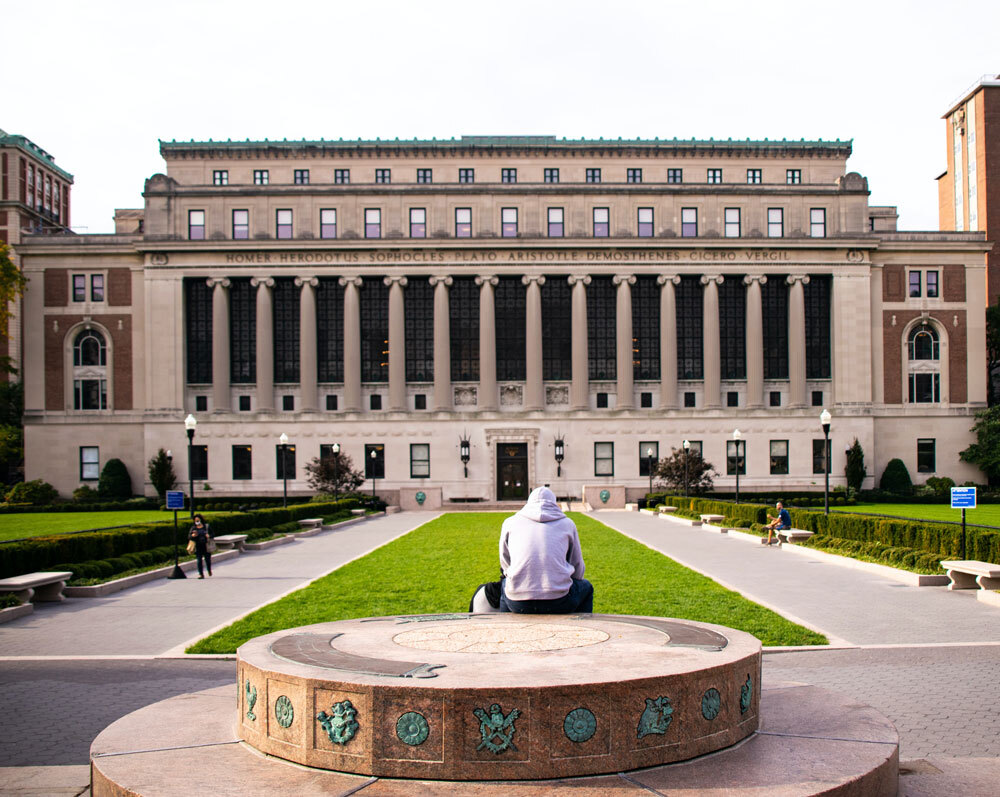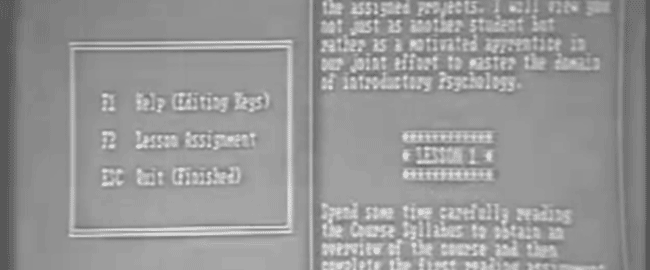
Columbia University has a big problem. (Chenyu Guan/Unsplash)
There was a time when I was in English class in high school, I finished a pop quiz that I was able to nail down basically perfectly, when I noticed that a classmate near me was copying off of me. And another nearby student copied off of them, and so on. Eventually I figured out that half the people in the classroom that day—the entire left side of the class, as I was in the middle—had directly ripped off my answers that I had figured out myself, no cheating.
Was the teacher not observant? Was I not protective enough of my answers? It doesn’t matter, as it benefited the other students, right?
(That story sounds made up, but I swear it actually happened.)
Now, I never went to a school as good as Columbia University, but I have to say that I find the tale of how the university found itself on the bad side of U.S. News and World Report to be utterly fascinating.
The publication “unranked” Columbia last week, citing a failure to substantiate data the university sent to the media outlet. For its part, Columbia says it is working on this issue, and plans to improve its practices in the future.
In a lot of ways, it shows that everyone—prestigious institutions on down—isn’t afraid to bend the rules when it benefits their organization. Columbia, in many ways, benefited from the combination of copying the answers of others while benefiting from a teacher who wasn’t closely observing the class.
For those who haven’t followed, Columbia has been near the top of the U.S. News rankings for years, reflecting the importance of the polling, which (in a perfect world) objectively measures schools in a way that can make it easier for families to make a decision about what school they send their kid to each year.
https://twitter.com/veenadubal/status/1545609669678333952
However, Columbia’s ratings were knocked down a peg by a mathematics professor at the university, Michael Thaddeus. A key statement in Thaddeus’ extraordinary takedown of his own employer:
A few other top-tier universities have also improved their standings, but none has matched Columbia’s extraordinary rise. It is natural to wonder what the reason might be. Why have Columbia’s fortunes improved so dramatically? One possibility that springs to mind is the general improvement in the quality of life in New York City, and specifically the decline in crime; but this can have at best an indirect effect, since the U.S. News formula uses only figures measuring academic features of universities, not quality-of-life indicators or crime rates. To see what is really happening, we need to delve into these figures in more detail.
And so he did, breaking down why a number of key measures in the methodology, while pointing out that Columbia’s own numbers could not be objectively recreated with some basic analysis. For example, he found that while Columbia reported a 96.5 percent full-time non-medical faculty level to U.S. News, doing some quick math based on numbers the school had submitted to the government, he quickly figured out that the number was actually around 74.1 percent, which is immensely off. He also raised questions about the emphasis on terminal degrees, something Columbia said 100 percent of its full-time faculty had. In that case, the number was much closer, at 96 percent, but as he noted, most of the people without terminal degrees had earned success in other ways, raising the broader question of why this was a necessary metric in the first place.
“Columbia would surely be a lesser place without them, even if 100 percent of its faculty really did then hold terminal degrees,” he wrote.
The fact that Thaddeus felt compelled to knock down his own school so systematically reflects a level of freedom in academia that doesn’t have a real-world equivalent. In the outside world, folks who blow the whistle on something so fundamental to the continued success of the organization become like Edward Snowden or Reality Winner—exiled or punished for their willingness to speak up about something that made the federal government look bad, while doing so for the greater good.
https://twitter.com/ibogost/status/1546831352225533955
Thaddeus, in many ways, is not just taking down Columbia’s own numbers, but the way that U.S. News has encouraged inflated rankings by emphasizing arbitrary measures over the quality of the school. If the media brand doesn’t look at this as an excuse to improve its own practices, it raises bigger questions than those that Thaddeus brought up about Columbia.
“When schools do not accurately report their data, U.S. News will review the matter on a case-by-case basis to determine appropriate remedial actions,” U.S. News stated upon unranking Columbia.
I would suggest something more systemic is in order.
Time limit given ⏲: 30 minutes
Time left on clock ⏲: 52 seconds



